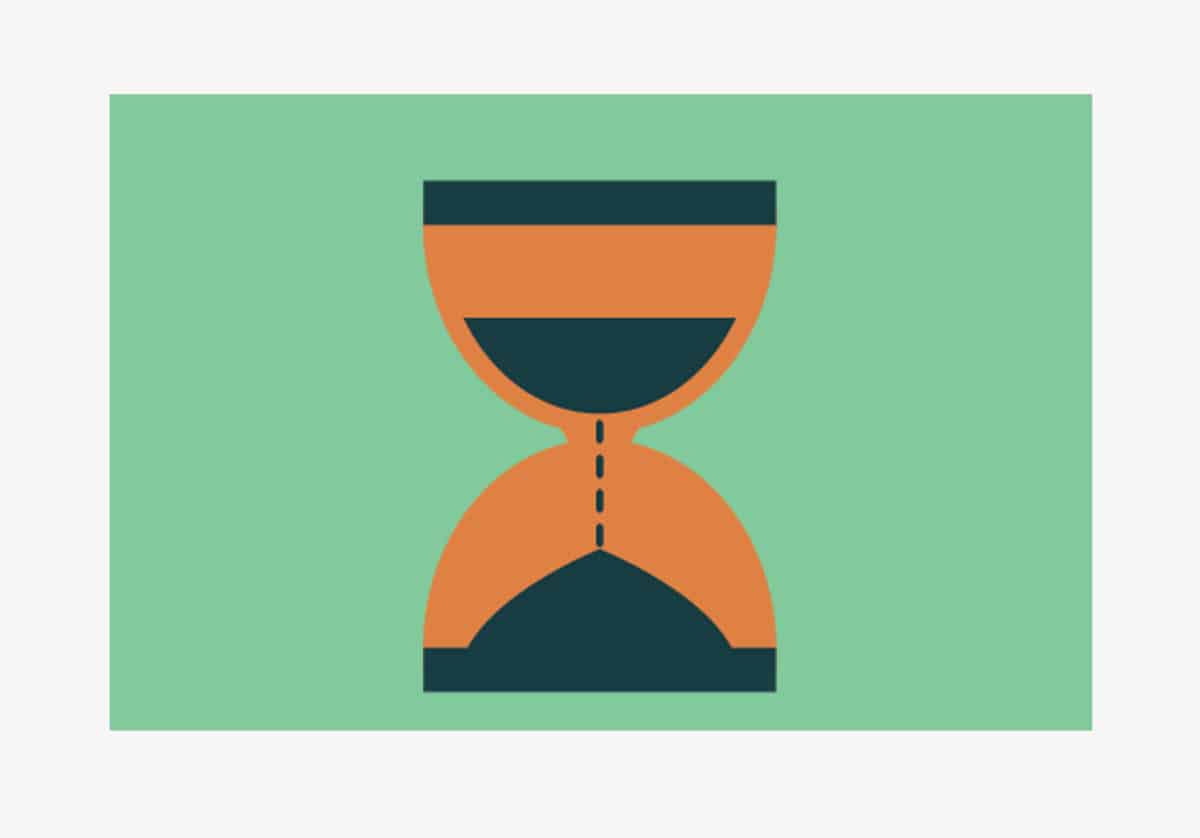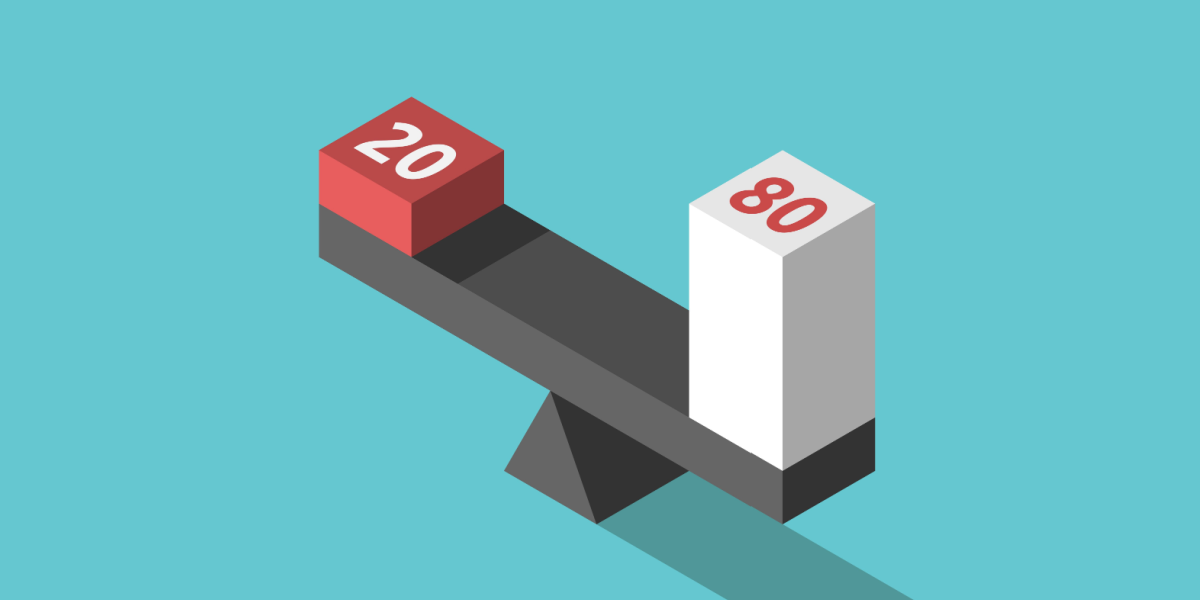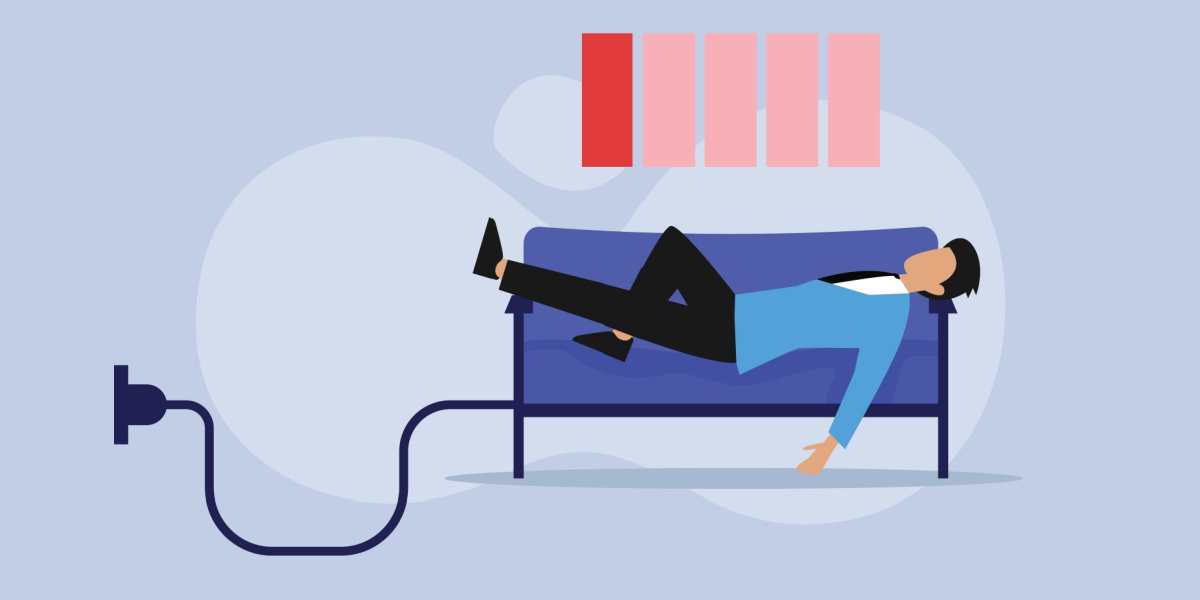You’ve got a unique, well-researched business idea, a fantastic pitch, and a solid business plan—great! You know exactly what you’ve got to do to bring this thing to market: implement it as soon as you can and work tirelessly to bring it to fruition. All you have to do now is get on with it. Right?
This is easier said than done. In fact, most people never make it past this phase.
So why do so many entrepreneurs and professionals sabotage themselves by procrastinating?
It’s true that we live in an environment full of distractions—social media being the main culprit. But surely it’s easy enough to log off Facebook, and turn your tablet to silent? After all, setting up your seven-figure business that will benefit so many people is a lot more important than seeing what your friends are up to online, isn’t it?
The truth is, it’s not that simple. People procrastinate for different reasons, and sometimes, those reasons aren’t within their control. If you suspect procrastination has become a problem in your life, you can try this free time management test from my company, to see how and where you’re wasting time. In the meantime, here are some of the reasons for procrastination, how to stop procrastinating, and suggestions for what you can do to regain control of your life, and get on with launching that seven-figure business!
How to Stop Procrastinating
The Curse of Chronic Procrastination
Chronic procrastination affects up to 20% of the adult population and most people affected by it don’t even realize how problematic it is. You know you’ve got chronic procrastination when it’s negatively impacting your work life, relationships, and even your health. It can be extremely destructive. This problem isn’t easy to resolve and you can’t just “get over it” without a solid action plan and a good understanding of the situation.
People develop chronic procrastination for a number of reasons, including:
- Controlling parent(s). One of the most common reasons people experience chronic procrastination is when an overbearing and controlling parent doesn’t allow a child to experience life and make their own decisions. Procrastination becomes a way to rebel against the authority figure. Unfortunately, this habit can carry on into adulthood.
- Fear of failure. Perfectionists and people who fear failure often delay and procrastinate because they want everything to be perfect. They don’t dive into a project or work because the circumstances aren’t exactly right. There’s always another excuse for delaying, and another, and another, until the project is shelved forever. These procrastinators care too much about other people’s opinions and can’t bear the thought of making mistakes.
- Genuine inability to make decisions. Some people have wonderfully creative ideas but a genuine inability to make decisions regarding them. They can’t take decisive steps to achieve their goals and are always torn between options and choices.
- Punishment rather than rewards. Research shows that positive reinforcement works better than punishment. If you reward someone for doing their work and reaching their goals on time, you’re less likely to experience procrastination. Unfortunately, what tends to happen is that people are penalized for not getting things done on time, but never rewarded for completing the tasks on schedule. This worsens chronic procrastination.
How to Handle Chronic Procrastination
If you’re a chronic procrastinator, you can’t just snap out of it. You need to come up with a positive action plan that will help you handle the problem and curb your bad habits. There are several solutions available to you:
CBT (cognitive behavioral therapy)
Cognitive behavioral therapy helps you stop procrastinating by changing the way you think and behave. Through this therapy, you can reduce your big problem with procrastination into smaller, manageable parts and deal with every part individually. The therapist will show you how to deal with your existing problems by slowly removing procrastination from your life. You’ll find great advice and a list of recommended CBT practitioners on the Anxiety and Depression Association of America website.
Improve your health
If you don’t eat well or exercise, you’ll feel weak and lethargic throughout the day and be more inclined to procrastinate. However, if you’re active, eat well-balanced meals, and maintain your health, you will have more energy and enthusiasm to get work done on time. Health should always be your priority because a healthy body is essential for a healthy mind. For health recommendations, check out the nutritional advice on the NHS (National Health Service UK) website.
Break the task down
One of the most common reasons for procrastination is the feeling of dread at the beginning of the task or even at the beginning of your work day. You have a daunting task to perform before you and just can’t get your mind to work on it because you’re too intimidated by the job. The best way to handle the task is to break it down into smaller chunks that don’t seem as intimidating. Think of it as chipping it away at goals, rather than completing steps—you’ll find some good advice on breaking it down here. Make sure you have clear but short breaks between those broken down sections. You might try the Pomodoro Technique, a famous time-management method that recommends breaking your work down into 25-minute intervals.
Work on your mood
You’re likely to procrastinate more if you’re in a bad mood, so it’s a good idea to get that out of the way before you work. It’s better to waste a small amount of time getting yourself in a pleasant mood than wasting a large amount of time struggling to get work done. Listen to music, take a walk in the sunlight, speak with a loved one, or read something interesting. Once you’re in a good mood, you can get back to your work.
Schedule wisely
Get into the habit of scheduling the most intimidating, but ultimately non-essential items at the start of the day and schedule interesting but more essential tasks later. You will slog through the former just in order to get to the latter and complete it on time. This is called positive procrastination and it can be quite effective to help you stop procrastinating.
Overcoming Technology-Based Distractions
How many times have you logged onto the internet to search for something related to work, only to be distracted by an interesting article or entertaining video? This is incredibly common in today’s techno-centric world, and it’s a big reason for procrastination.
Technology-based distractions include everything from phone calls and emails to social media, and because we’ve all become accustomed to instant access to information, if this access is delayed, we experience “FOMO” or “Fear of Missing Out.”
FOMO applies to all technology-based communication. We don’t want to silence our email notifications because we don’t want to miss out on essential emails. We don’t want to silence our phones because we don’t want to miss out on important calls and messages.
Similarly, we don’t want to miss out on social media activities, especially on fast-paced platforms like Twitter, where messages that were posted two hours ago are considered old. The potential for procrastination is huge!
How to Handle Technology-Based Distraction
The best way to handle this distraction is to schedule small breaks during the work day and deal with all your calls, social media interactions, and emails then.
For example, you could work for 50 minutes, spend 5 minutes catching up on emails and social media, and take a 5-minute screen break (this is important because staring at a computer all day long really isn’t good for you!)
This will help you organize your time better, and allowing yourself to spend a few minutes on social media may even stop you from bingeing on it, because forbidden fruit is often the most appealing! Eventually, you’ll develop the habit of limiting your social media time subconsciously and become more productive.
Photo by Charlz Gutierrez de Pineres (Unsplash)
Bringing Order to the Chaos of Your Life
Structure and order are your best friends if you struggle with procrastination. As mentioned earlier, many people procrastinate because they believe they have too much to do. If your daily schedule is disorganized and chaotic, you will feel overwhelmed and anxious. That will lead to procrastination.
However, if you’ve prepared a good schedule with the tasks distributed evenly throughout the day and with small breaks in between, you’ll have a better time dealing with the workload and avoiding procrastination. You should take some time to organize your schedule on the previous day so you know what you need to deal with. Here are some tips for creating a schedule that will help you avoid procrastination:
Sleep
Make sure you have a full night’s sleep before you attempt to tackle your work day. Avoiding sleep isn’t an option, because you will eventually feel the effects. You need to sleep for a set amount of time every day. If you sleep for only four or five hours instead of the seven or eight hours your body requires, the deficit will keep building up until you crash during the weekend and sleep through it entirely. It’s better to reschedule some tasks than to sacrifice your sleep. Proper sleep will help you with your overall productivity and stop procrastination.
Divide your day into slow and fast periods
You can’t keep up the same pace of work throughout the day. You will slow down at some point, so you must find ways to work around this. A great way to do it is to schedule easy and smaller tasks for the times in the day when you feel least motivated (which, for most people, will be the afternoons) and intense and demanding tasks when you have more energy and motivation.
Take Breaks
Don’t forget to schedule some breaks between tasks so you can refresh your mind and body. Your mind simply isn’t designed to work on the same thing for several hours at a time. Eventually, the monotony will have an impact and you will slow down considerably.
You’ll become more and more hesitant to move onto a new task and that will lead to procrastination. The best way to deal with the situation is to schedule short breaks and do something entirely unrelated to work. Don’t just log into social media for five minutes—you need to step away from the computer. If I’m in the office, I find heading to the kitchen to make a cup of tea or coffee helps clear my mind, although there’s a danger I’ll overdo the caffeine so I usually opt for decaf!
If I’m working from home, I like to get out for an hour at lunchtime to walk my dogs (a labrador and a jackabe, for the record), which is fantastic for helping me unwind and de-stress, and kills two birds with one stone by also providing me with the right amount of exercise for the day!
My jackabe (Jack Russell/Beagle) Spotty is a great reason to ensure I factor breaks and downtime into my day!
The Importance of Taking Downtime
Business owners and new entrepreneurs are often tempted to sacrifice weekends to get the job done. After all, what could be more important than getting your business off the ground?
However, this can actually be counterproductive, causing you to slow down or procrastinate. It can also have a negative impact on your mental and physical health in the long term. You need to give your body and mind a full break after intense working weekdays.
I can’t emphasize enough the importance of regular breaks. A study done by the University of Illinois found that even brief diversions from a task can dramatically improve one’s ability to focus on that task for prolonged periods.
Taking breaks during the day and during the week might seem like a waste of time, but trust me, it actually helps you become more productive. You’re more motivated to get work done because you have a life to get on with outside work! Business owners who take time to rest and maintain an easily manageable schedule are less likely to procrastinate and more likely to be productive.
Taking That First Step
This is a big one. If you know you’ve got a huge task or project ahead of you—like launching a new business—the very idea of getting started can be extremely daunting, and this in itself can be demotivating. You may find yourself delaying getting started until you can muster the motivation or develop a solid plan for handling the problem, resulting in wasted time, and even the possibility that your fantastic business idea may never see the light of day.
The most important thing here is taking action with the mindset that it’s not the perfect time. Instead of waiting for everything to fall into place and your mind to be perfectly focused, just dive right in. Take one step, post your landing page, make your website live, make one sale. Whatever that first step is, it’s not even all that important. It’s like throwing your hat over the fence. A small commitment initiatives further action.
Yes, you’ll make mistakes, might not do a good job, and might struggle with creativity at the beginning, but after you take the first step, your mind will eventually follow. You can always go back and correct whatever mistakes you find after you’ve completed the task.
Sometimes, you just need to start working even if you’re not in the mood for it. If you start with an interesting project, you’ll eventually become interested and will regain your focus. This is surprisingly effective.
Taking Back Your Productivity
You’re not helpless. You can stop procrastinating.
This problem can be managed if you’re honest with yourself, committed, organized, and willing to take the right steps. If you suffer from chronic procrastination, you may need to look into CBT or other forms of therapy, but otherwise most procrastination-related problems can be tackled by creating an action plan that suits you, using the help provided in this article.
Once you’ve beaten your procrastination habit, you’ll be able to move forward with establishing your business without hangups and distractions.
Do you struggle with chronic procrastination? Do you have any tips or advice you want to share? If you have any questions or suggestions regarding this topic, feel free to ask or discuss in the comment section below.


















